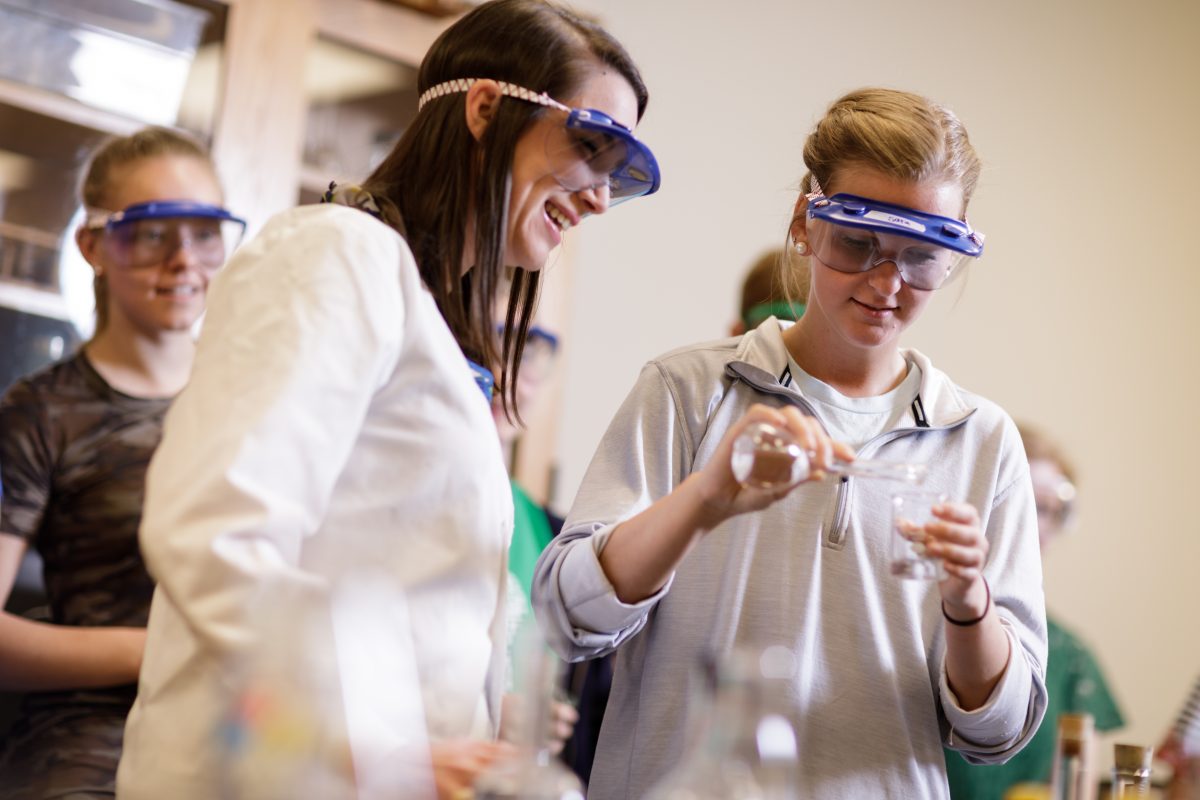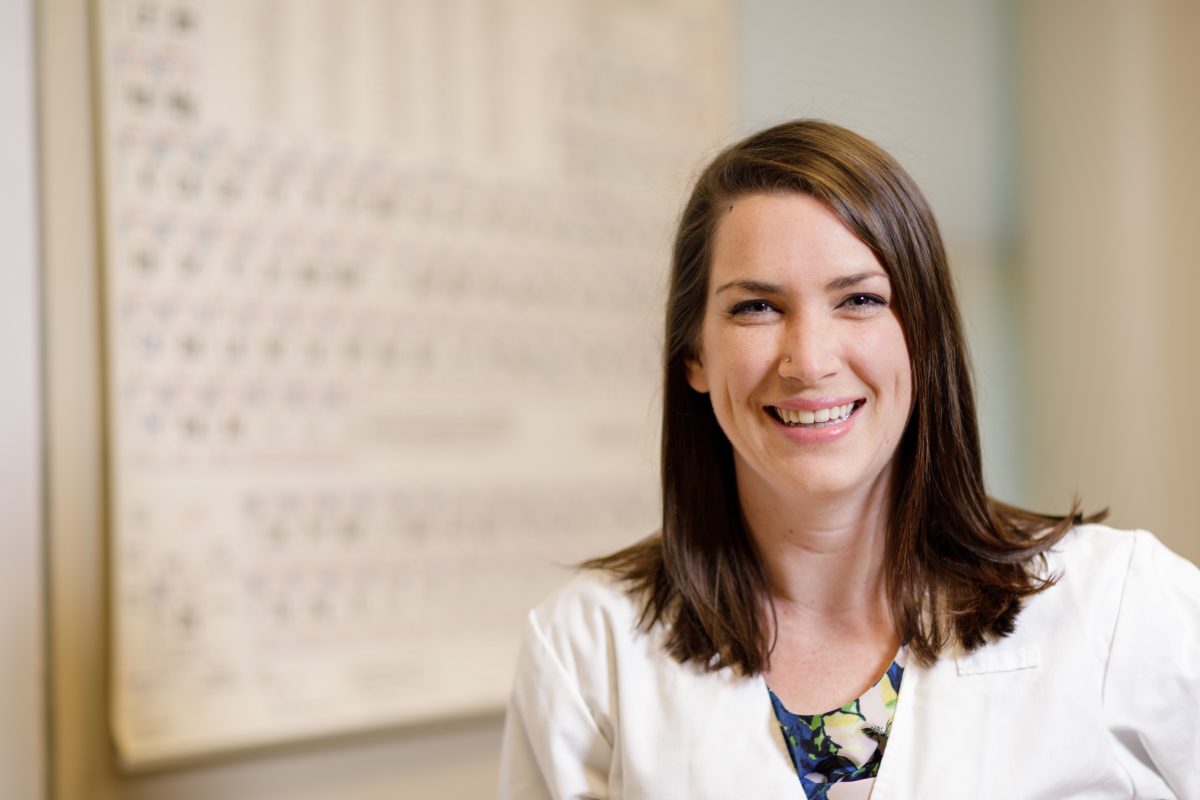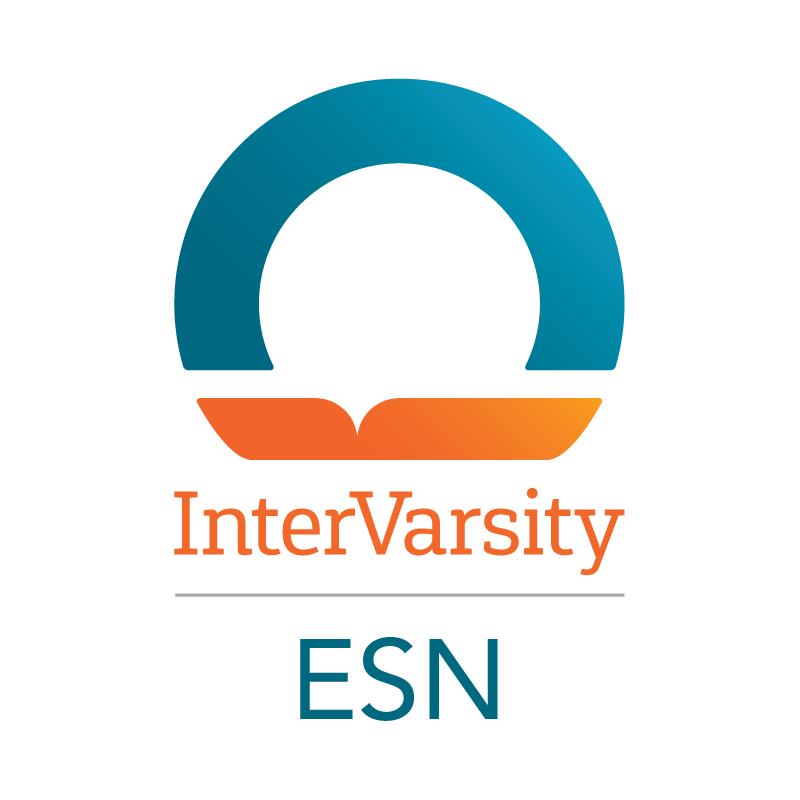
Dr. Jill Ellenbarger is one of the two scholars who received a 2017 Christian Scholars Foundation Grant, given to ESN members who are junior faculty. In this interview, she talks about her research, how the CSF grant is supporting her work, and how her faith and her scholarly vocation fit together. Earlier we interviewed Eleanor McGlinchey, PhD, the other 2017 awardee. Click here to learn more about the 2018 CSF Grant and apply by March 15, 2018.
Biography for Jill Ellenbarger
Jill Ellenbarger, Ph.D., is an Assistant Professor of Chemistry at John Brown University. Dr. Ellenbarger received a B.S. in Chemistry from Union University and a Ph.D. in Inorganic Chemistry from Texas A&M University, under the direction of Prof. Kim R. Dunbar. She currently teaches General Chemistry and Physical Science courses in the Division of Natural Sciences at John Brown University. Dr. Ellenbarger’s research in Supramolecular Chemistry focuses on using computational methods to design color-changing, urea-based receptors that selectively identify the presence of various anionic contaminants in water.
Interview with Jill Ellenbarger
1. ESN: Would you tell us a little bit about your field and specific area of study within that field?
Jill: I have the opportunity to explore the field of chemistry, specifically supramolecular chemistry. Whereas many areas of chemistry focus on forming and understanding the bonding interactions between atoms in individual molecules or compounds, supramolecular chemistry is focused on the far weaker interactions that occur between discrete molecules and/or charged particles. I am particularly interested in using computational methods to explore the interactions between negatively-charged particles (anions) and neutral molecules in water. As our understanding of these weak interactions grow, we are able to more carefully fine tune the relationships between compounds of interest in order to achieve desirable properties within a sample.
2. Would you describe your Christian Scholars Foundation Grant project for our readers?
Several years ago, missionary friends of mine began experiencing health issues due to prolonged exposure to high levels of fluoride, an anion, in their drinking water. As a chemist with expertise in the weak interactions of anions, I have felt particularly motivated to approach this pervasive need for identifying contaminated water through supramolecular and computational chemistry methods. My research is focused on developing a series of urea-based molecules that interact strongly with anions of interest, including fluoride and nitrate. We are working to design molecules that will undergo a distinct color change to easily identify the presence of these anionic contaminants in water. Much like a specific key is able to fit into and access a specific lock, my research group is computationally exploring the energetic and structural factors that can be used to design “tailored” receptors for specific anions.
3. How does the Christian Scholars Grant support you in this work?
Through the generous support of the Christian Scholars Grant, I am facilitating a six-week undergraduate research program this summer. The grant will support two full-time summer undergraduate researchers as they pursue individual research projects within the context of my research objectives. By mentoring undergraduate researchers, my efforts will be multiplied and new questions will be explored through my students’ unique perspectives. I am thrilled to expand my research program at John Brown University to engage more undergraduate students in computational research around this global challenge of identifying contamination in water.
4. This is a big question, but I know our readers will be interested in at least the short version of your answer to it. How does your faith influence your scholarship and teaching, and vice versa?
I love that through my study of chemistry I have access to observe how God has carefully designed and organized His creation at the unfathomably minuscule atomic level. As I encounter characteristics of God – His faithfulness, creativity, etc. – showcased through science, I enjoy engaging with students around these “science parables”. One of my favorite conversations centers on the faithfulness of God in the weak interactions that stitch DNA together and cause water to be liquid at room temperature. My research expounds on these conversations by seeking to steward best our growing understanding of these supramolecular interactions. As my research team explores and develops receptors to selectively identify anionic water contaminants, my desire is that we would not only talk about people’s access to clean water but also their need for Living Water!

5. Is there anything else you’d like to share with emerging Christian scholars?
Part of being an emerging Christian scholar is the “emerging” piece. What a dynamic season of life this can be with such a strong focus on progress and performance. And yet, the Lord has been reminding me recently that our true value comes from the fact that we are image bearers of the Almighty – an absolute that is independent of our academic credentials or most recent results or eloquence in the classroom or publication record and is dependent on a God who is, by nature, faithful. In light of this inherent worth and through His strength alone, keep emerging!

The Emerging Scholars Network is always seeking opportunities to identify, encourage, and equip the next generation of Christian scholars to be a redeeming influence in the academy, church, and the world. As you have an announcement, a “call for papers”, an event, a prayer request (e.g., campus, field, higher ed), a resource suggestion, a review, etc., which is in concord with our Kingdom of God endeavor, please send materials (marketing/sales material not accepted) for consideration to post via email or the ESN Writer Survey. Thank you.

Leave a Reply